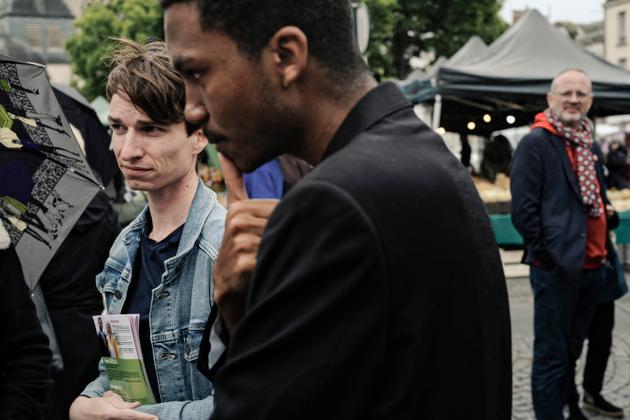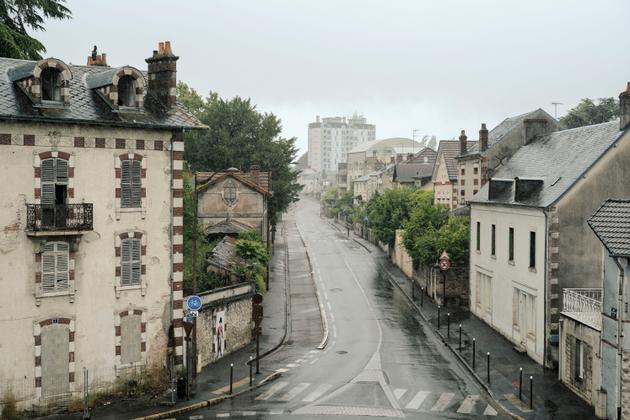“The dissolution. The di-sso-lu-tion.” Julien, who didn’t wish to share his last name, repeated the word one more time. He can’t get over it. “The dissolution woke me up. I said to myself: This is it, this is my chance.” Julien is a tall, shy man with a brown beard, in his 30s, who was wringing a packet of leaflets for the left-wing Nouveau Front Populaire (NFP) alliance as if he didn’t know what to do with them. “Come on, give me one, I feel sorry for you,” joked a woman under a pink umbrella. Julien was so moved that he didn’t hear her, and she had to grab the paper out of his hand. The lady works in a secondary school, here in the central French city of Bourges. She’s a left-wing voter. Very eager to cast her vote, but for whom? Determined to avoid a national catastrophe, but which one?
She spoke of a feeling of vagueness and seriousness at the same time, of the leaden silence that sets in as soon as people talk politics in the canteen, even as an irrepressible excitement builds up as the election approaches. With two days to go before the first round of voting in France’s June 30 and July 7 snap legislative elections, the number of proxy votes registered in Bourges was nearing 3,000, compared with 600 for the European elections. She, too, wants to be involved, but it’s so painful. Would she agree to have her name published? “Don’t even think about it, given the situation! We live in small towns and the countryside, not in Paris.”




For Julien, it was the first day of his first campaign, handing out leaflets and going door-to-door. “All these people who come up to me, I don’t know how to behave, I don’t feel at ease,” he said. For the past five years, he’d been working remotely for an IT company, a reclusive life, friends drifting away one by one, the telephone mute. One afternoon, in the winter of 2023, he ventured out to a demonstration on the pension reform, perhaps to get a taste of the world. His mother had challenged him: “Are you a union member?” She had glared at him. “I think she would have preferred for me to be gay. I come from a right-wing family, which defends the value of working.” When a La France Insoumise (LFI, radical left) party candidate for the Nouveau Front Populaire issued an appeal on social media for her campaign in the Cher department’s 3rd constituency, Julien had just been laid off. A thought crossed his mind: “I’m going to meet some people.”
On that day in June, a dozen volunteers gathered in Val-d’Auron, a district south of Bourges, on the shores of a large lake. Once a chic residential area, it has slowly slipped into an impoverished “priority zone.” Young, enthusiastic LFI activists made up the bulk of the team, a convivial atmosphere. “When you’re young, you’re LFI,” enthused Nicolas Malin, on unpaid leave in the IT sector. He’d just come back from the countryside, where he was handing out leaflets. He was disgusted. “They spat on me, even though I’m from the area.” Emma Moreira was the youngest of the group: 21 years old, jean jacket cut into a corset top, piercing, student at Bourges’ fine arts school. She’s the Nouveau Front Populaire candidate, her stripes earned at the forefront of protests against the pension reform and the Parcoursup university selection system.
You have 83.34% of this article left to read. The rest is for subscribers only.